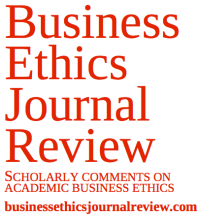 We know that sometimes even a true statement can be misleading. For example, when Publisher’s Clearinghouse Sweepstakes entry forms state that “nobody has a better chance of winning than you,” some people take that statement – wrongly – to mean that they have a better chance of winning than everyone else. (The statement is, of course, consistent with everyone who enters having an equal chance of winning, but that’s not how everyone reads “nobody has a better chance of winning than you.”)
We know that sometimes even a true statement can be misleading. For example, when Publisher’s Clearinghouse Sweepstakes entry forms state that “nobody has a better chance of winning than you,” some people take that statement – wrongly – to mean that they have a better chance of winning than everyone else. (The statement is, of course, consistent with everyone who enters having an equal chance of winning, but that’s not how everyone reads “nobody has a better chance of winning than you.”)
But what about the inverse case? Can a false statement be innocuous because it’s not misleading?
Recently, one of the editors bought a bottle of McCormick maple extract (pictured). The box in which it came contains the claim (at the top) that the 2-fluid-ounce bottle contains “2x [two times] more than our 1 fl oz” bottle. But the 2 oz bottle doesn’t contain two times more maple extract than the 1 oz; it contains two times as much. In order for it to contain two times more, it would have to contain 3 oz (because 3 is two times more than 1). So, the statement is literally false.
However, it is likely that most people – and perhaps all people except the editor in question – use ‘x times more’ and ‘x times as much’ interchangeably to mean ‘x times as much’, and thus read ‘x times more’ to mean ‘x times as much’. Put differently, perhaps no one expects a bottle promising ‘two times more’ to contain three times as much—and they might be misled about the volume on offer if it did contains three times as much.
Is McCormick in the clear here after all?>>>

(Photo: It doesn’t contain two times more, but it says it does.)
What do you think?




Another example of (arguably) false-but-not-misleading advertising: “hormone-free” milk. Technically, as a biological fluid, milk is never really hormone free. But what the bottlers (and I think consumers) of “hormone free” milk mean by “hormone free” is that the milk was not produced by means of injection of *additional* hormones (such as bovine growth hormones) into cows.
Pingback: Top 10 Business Ethics Stories of 2018 | Business Ethics Highlights
Pingback: Assignment 4: Workplace Ethics - Essay Flix